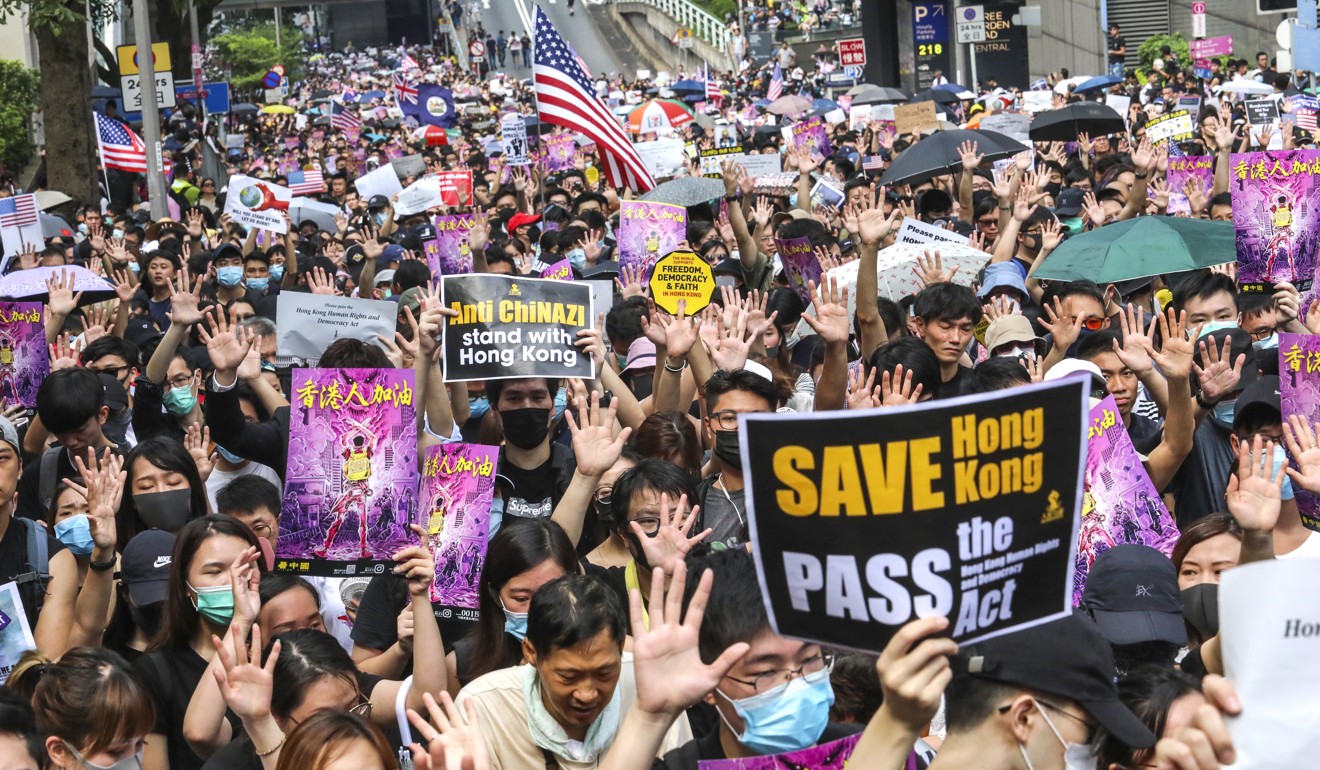
Financial Secretary Paul Chan warns US bill – the Hong Kong Human Rights and Democracy Act – could damage city’s appeal to overseas investors
- The Hong Kong Human Rights and Democracy Act edged closer to becoming law this week after it passed committees in the House and Senate
- Chan also warned city could slip into a ‘technical recession’ in the this quarter of the year
Hong Kong’s finance chief on Saturday warned that the passage of a US bill written to support democratic freedoms in Hong Kong by increasing pressure on Chinese authorities could damage the city’s appeal to overseas investors.
Financial Secretary Paul Chan Mo-po, speaking on a local radio programme on Saturday, said: “Because the bill has received support across parties, the chances of it being passed are very high.”
He said how President Donald Trump and the US government viewed the bill was still unknown.
“Passing the bill in itself will not have immediate effects,” Chan said.
He noted, however, that there would be psychological effects if the bill was approved.
“If such a bill is passed, how will businesses, such as overseas investors, view Hong Kong?” he said. “Will they be more careful before making investments in Hong Kong?”

Critics have said the measure could influence Beijing’s strategy on Hong Kong, because losing the special trade status would affect investment in mainland China as well as the city.
The bill is scheduled for a floor vote in the House of Representatives in October.
During the radio show, Chan also warned that Hong Kong could enter a “technical recession” in the third quarter, with unemployment increasing in the retail, hotel, food and beverage and construction sectors.
A technical recession means at least two consecutive quarters of economic contraction.

“Our initial assessment is that the economic performance for the third quarter will still be very challenging and it is highly likely that we will be registering quarter-on-quarter negative growth again for this quarter,” he said.
Instead, he said mortgage insurance was more feasible because it would not have such a big impact on the financial system.
The Hong Kong Mortgage Corporation provides mortgage insurance schemes to help those who struggle to come up with the 30 per cent down payment on a home.
The group’s Mortgage Insurance Programme allows potential homebuyers to get an 80 per cent loan-to-value mortgage for flats worth up to HK$6 million (US$765,282) and a loan-to-value mortgage of 90 per cent on homes worth HK$4 million or less.

